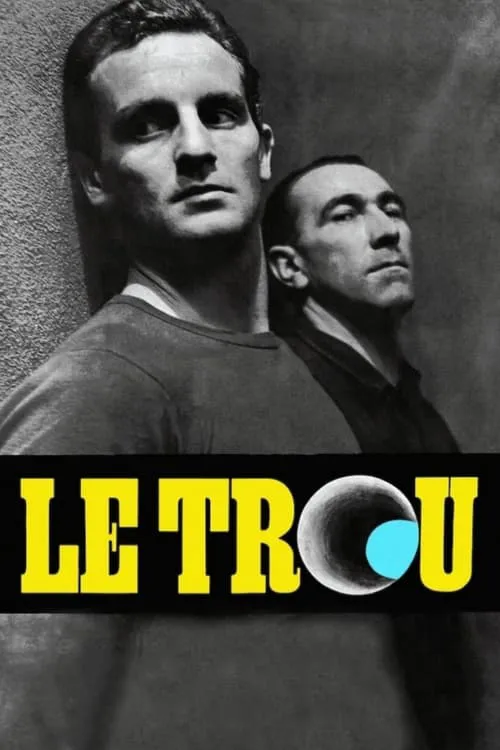Le Trou

Plot
In the 1960 French film 'Le Trou', directed by Jacques Becker, the world within a maximum-security prison is brought to life. The story revolves around a group of four inmates, all seasoned prisoners who have made a routine of their lives within the walls of the institution. These men, led by the calculating Raymond Parot (a.k.a. 'Raymon'), have spent years perfecting a plan to liberate themselves through a rather unconventional means – literally digging their way out. Raymon's plan involves creating a makeshift tunnel through the concrete floor of the cell block, making it possible for them to breach the sewer system beneath and eventually reach the outside world. This intricate and well-thought-out plan is a testament to the prisoners' resolve and ingenuity. However, their biggest challenge lies ahead, as they must first convince a new inmate, Claude Gaspard, to join their cause. Upon Claude's arrival, Raymon makes it clear to him that the plan to escape is a collaborative effort, requiring unwavering dedication and trust among its participants. After carefully deliberating, Claude decides to take the risk and join forces with the other prisoners, marking the beginning of an exhilarating adventure filled with both suspense and camaraderie. As the group embarks on their daring escapade, the initial excitement and elation give way to the harsh realities of their situation. The physical toll of digging through concrete proves to be far more grueling than anticipated, with prisoners suffering from severe injuries and fatigue. The psychological strain of living with the weight of failure and potential discovery is equally daunting, casting a shadow of doubt over their chances of success. Director Jacques Becker masterfully captures the tension and anxiety within the characters as they push forward with their plan. The camera zooms in on the prisoners' sweat-drenched faces, their eyes pleading for support, and their exhausted breaths as they work tirelessly to create a passage through the solid concrete floor. These poignant moments humanize the characters and bring the audience into the heart of their struggles. The cinematography, in particular, plays a significant role in elevating the drama. Using a combination of close-ups and long takes, Becker skillfully conveys the claustrophobic atmosphere within the cell, amplifying the tension that builds as the characters work tirelessly to achieve their goal. At the same time, the use of high-contrast lighting effectively showcases the stark beauty of the prison architecture, juxtaposing the beauty of the built environment with the desperation and despair of its inhabitants. As the days turn into nights, the prisoners' progress falters due to various setbacks, including the discovery of their plan by a suspicious prison guard. In the face of these obstacles, Raymon's group must employ their cunning and experience to outsmart their adversaries and continue working in secret. Through 'Le Trou', Jacques Becker offers an intimate exploration of the lives of those confined within the walls of a cold and unforgiving institution. Rather than providing a sensationalized portrayal, Becker takes a compassionate approach, emphasizing the strength and resilience that these characters have developed over the years. In doing so, the film sheds light on the complexities of the human spirit and the boundless capacity for hope and survival. In the climactic final scenes of 'Le Trou', the prisoners, fueled by their unwavering dedication, make a desperate attempt to escape through the sewer system. In this nerve-shredding climax, the characters' resolve is pushed to its limits as they face the very real possibility of capture, injury, or even death. The fate of the prisoners hangs precariously in the balance, as the film hurtles towards its tense and thought-provoking conclusion. Ultimately, 'Le Trou' emerges as a gripping drama that masterfully conveys the intricacies and complexities of life behind bars. With its meticulously crafted characters, thought-provoking themes, and expertly crafted tension, the film invites viewers to reflect on the indomitable will to survive that resides within us all. As the curtain falls on this captivating narrative, one thing remains certain: the memories of 'Le Trou' will linger long after the credits roll, forever echoing the resilience and spirit of those who have been forced to live in the shadows of society.
Reviews
Recommendations




